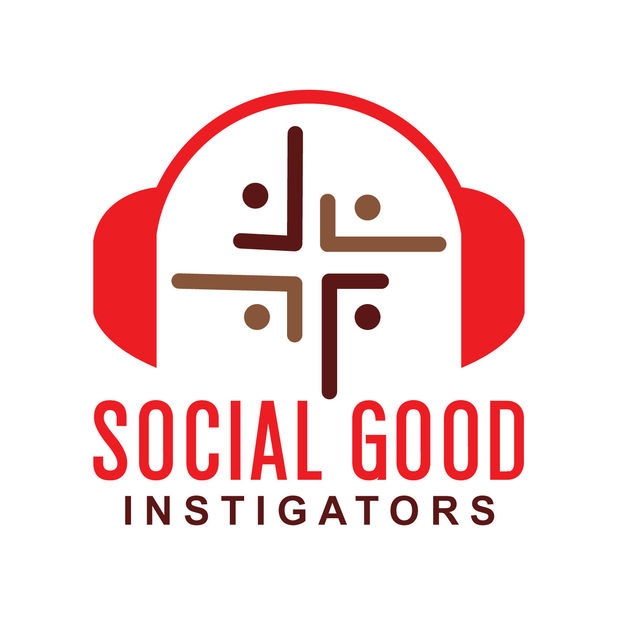
Social Good Instigators Podcast
Kirsten Bullock
Looking for inspiration and encouragement geared towards leaders of social good organizations? Join your host Kirsten Bullock on the Social Good Instigators Podcast to hear about what's working. You'll be learning from other leaders who will provide helpful tips related to social entrepreneurship, growing successful organizations and more. Leaders will be sharing about ways they helped their organizations excel (as well as things that didn't work out so well). Formerly known as the Nonprofit Leaders Network Podcast.
- 25 minutes 1 secondSGI64: Communication is the Cure with Lynn O’Connor Vos
Communication is at the heart of work in the nonprofit sector. Whether in our relationships with donors, sponsors, staff, or those we serve, clear communication, with information the recipient sees as useful is essential. In this episode, Lynn O’Connor Vos, the new CEO of the Muscular Dystrophy Association will be sharing more about communication – and about ways the MDA is better serving it’s clients.
A few of the key points covered in this podcast discussion are: • Companies are seeking ways to be socially responsible, nonprofits provide an avenue for that • Digital provides opportunities – and responsibilities – for nonprofits in communicating with their various constituencies • Seek a win-win with corporate sponsors – and other constituents • Innovation leads to brand leadership (i.e. the telethon, innovative in its day, led to national recognition of a somewhat obscure family of diseases)
About the Guest: Lynn O’Connor Vos is president and ceo of the Muscular Dystrophy Association. She was previously the Global Chief Executive Offices of Greyhealth Group (ghg) for nearly 23 years and is credited with creating, building and acquiring companies — specifically, nine acquisitions — to grow ghg’s global footprint. While at ghg, Vos led global expansion and diversification strategies and within two years grew the company from a small, domestic professional player into an award-winning global enterprise with fully integrated, multi-channel offerings. She is a recognized thought leader in the industry with published white papers and articles outlining new, successful approaches to health care technology and communications.
From the MDA Website: MDA is leading the fight to free individuals — and the families who love them — from the harm of muscular dystrophy, ALS and related muscle-debilitating diseases that take away physical strength, independence and life. We use our collective strength to help kids and adults live longer and grow stronger by finding research breakthroughs across diseases, caring for individuals from day one and empowering families with services and support in hometowns across America.
Visit www.socialgoodinstigators.com to find the podcast, transcript, and to sign up to receive notifications as new episodes are released (every 2-3 weeks). Episodes are also available via Stitcher, iTunes, GooglePlay, and iHeartRadio.
30 April 2018, 11:00 am - 21 minutes 28 secondsSGI63: Investing in Your Organization’s Future with Travis Laws
We’re told to do more with less, but sometimes, it pays to invest in the infrastructure of our organizations. On this episode, Travis Laws, President and chief Executive of WIN Warehouse, based in St. Louis Missouri, will be sharing with us about the value of investing in your organization and the importance of telling your story.
The key points covered in this podcast discussion are: • How underinvesting in overhead can backfire • A simple way to start the overhead conversation with your board • How to calculate a ‘low hanging fruit’ score to determine the next right thing to do • The importance of stories to communicate impact About WIN Warehouse: WIN Warehouse is a 501 (c)(3) public charity located in St. Louis, Mo, in its 28th year of operation. WIN’s mission is to provide value and mutual sustainability by connecting nonprofit organizations with corporate excess inventory. WIN is a dedicated community committed to helping nonprofit organization with the goods they need to further their impact.
WIN Warehouse was founded in 1991 by Clinton Laws, Travis’ father, when he learned of the enhanced tax deduction offered by the IRS for gifts of excess inventory. With a passion for helping others, he saw a tremendous opportunity to connect nonprofits in need of products and resources with corporations in need of moving their excess inventory. Twenty-eight years later, WIN Warehouse now serves nonprofits all around the world and some of the most forward-thinking corporations in the United States. For more information about WIN Warehouse visit www.winwarehouse.org.
Visit www.socialgoodinstigators.com to find the podcast, transcript, and to sign up to receive notifications as new episodes are released (every 2-3 weeks). Episodes are also available via Stitcher, iTunes, GooglePlay, and iHeartRadio.
16 April 2018, 11:00 am - 24 minutes 31 secondsSGI62: Nonprofit Leadership Challenges – and Opportunities with Marc A. Pitman
What do you think about leadership in the nonprofit sector? In this episode, we’ll be talking with Marc A. Pitman about a report he just commissioned called ‘The Wake-Up Call.’ He’ll share a few of the highlights from the report, information about benefits and risks for different styles of nonprofit leadership, as well as suggestions about what nonprofit leaders can do next. The report is available at concordleadershipgroup.com/report
The key points covered in this podcast discussion are:
- Four styles of nonprofit leadership • Long-term challenges in not providing training for nonprofit staff members
- How strategic planning is defined and whether or not it is actually happening
- The importance of taking time to step up to the ‘balcony’ from the ‘dance floor’ to get a broader perspective
- The need for new nonprofit leaders – we will be needing an estimated 80,000 new nonprofit leaders each year
- You’re not alone – you’re not the only nonprofit leader facing these challenges
ABOUT OUR GUEST: Marc A. Pitman helps leaders, especially in nonprofits, lead their teams with more effectiveness and less stress. The author of "Ask Without Fear!®," he is the founder of The Concord Leadership Group and FundraisingCoach.com. He's also the executive director of TheNonprofitAcademy.com and an Advisory Panel member of Rogare, a prestigious international fundraising think tank. Called "The Johnny Appleseed of Fundraising," Marc's expertise and enthusiasm engages audiences around the world and has caught the attention of media organizations as diverse as Al Jazeera, SUCCESS Magazine, and Fox News. Marc’s experience also includes pastoring a Vineyard church, managing a gubernatorial campaign, and teaching internet marketing and fundraising at colleges and universities. On Twitter, he is @marcapitman. He is the husband to his best friend and the father of three amazing kids. And if you drive by him on the road, he’ll be singing 80’s tunes loud enough to embarrass his family!
Get you free copy of The Wake Up Call, the latest nonprofit leadership report at: https://concordleadershipgroup.com/report/
Visit www.socialgoodinstigators.com to find the podcast, transcript, and to sign up to receive notifications as new episodes are released (every 2-3 weeks). Episodes are also available via Stitcher, iTunes, GooglePlay, and iHeartRadio.
2 April 2018, 11:00 am - 22 minutes 39 secondsSGI61: A New Way of Giving with Sharna Goldseker
Do you ever wonder what the next generation is interested in and how they choose to be involved with, and give to, different charities? Listen in as Sharna Goldseker, co-author of How Next Gen Donors are Revolutionizing Giving shares some insights into this topic – and about her personal giving journey. Visit https://2164.net/generation-impact/ for more information.
The key points covered in this podcast discussion are that NextGen Donors: • are interested in many of the same issues as their parents, but want to address issues differently • want nonprofits to value the contribution they bring – beyond simply party planning • are in the receiving end of an unprecedented transfer of wealth • are focused on impact • have a desire to be a part of something bigger than themselves Visit www.socialgoodinstigators.com to find the podcast, transcript, and to sign up to receive notifications as new episodes are released (every 2-3 weeks). Episodes are also available via Stitcher, iTunes, GooglePlay, and iHeartRadio.
ABOUT THE SPEAKER: Sharna Goldseker is a leading expert on multigenerational and next generation philanthropy. She is executive director of 21/64, the nonprofit practice she founded to serve philanthropic and family enterprises with strategies for transforming how families who give will define their values, collaborate, and govern in the decades ahead. She is also a speaker, writer, and consultant who engages multiple generations in the intersection of values and strategy to transform the art of giving. A next gen donor herself, Goldseker offers a trusted insider’s perspective on philanthropy. She is a recipient of the J.J. Greenberg Memorial Award for extraordinary leadership, and the RayLign Foundation Family Well-Being Award. She was named one of 2016’s Women of Influence by New York Business Journal and one of 2014’s Women to Watch by Jewish Women International. A consistent presence in philanthropy for two decades, Goldseker advises leaders on next generation engagement including multigenerational organizations, nonprofits, philanthropic networks, and foundations. Goldseker has written for Forbes, Philanthropy Impact, and has been featured with coauthor Michael Moody, in the New York Times, Stanford Social Innovation Review, and Huffington Post. She is married, with two children, and lives in New York City.
19 March 2018, 11:00 am - 21 minutes 11 secondsSGI60: Accelerating Your Fundraising with Sandy Rees
If you’re running a small and growing nonprofit, this show is definitely for you. Sandy Rees will be sharing all sorts of tips and ideas about fundraising, time management, and communicating clearly with your core audiences. She also mentions in the interview a free upcoming webinar where she’ll go more in-depth about this. To learn more visit her website at www.getfullyfunded.com/accel The key points covered in this podcast discussion are the importance of: • clear communications • taking a step back • working in your area of excellence • taking to get grant-ready (and how to do so) About the Speaker: Sandy shows passionate nonprofit leaders how to fully fund their big vision, so they can spend their time changing lives instead of worrying about money. She has helped dozens of small nonprofits go from “nickel-and-dime fundraising” to adding 6 or 7 figures to their bottom line. As a trainer, she shows her students how to find ideal donors, connect with them through authentic messaging, and build relationships that stand the test of time, so that fundraising becomes easy and predictable. Sandy is based in Loudon, TN. Find out more about her fundraising system at www.GetFullyFunded.com. Visit www.socialgoodinstigators.com to find the podcast, transcript, and to sign up to receive notifications as new episodes are released (every 2-3 weeks). Episodes are also available via Stitcher, iTunes, GooglePlay, and iHeartRadio.
5 March 2018, 12:00 pm - 25 minutes 26 secondsSGI59: Starting Smart with Tim Scott
Sometimes an idea starts small and grows into something much, much bigger. That was the case for Tim and Agata Scott and Mitscoots Outfitters. What started with manufacturing socks to sell – and give away – is now an outfitter company that employs transitioning homeless, manufactures a full line of products, serves agencies that help the homeless and ships their products around the world. In this episode, we talk about the process of starting a social good venture and how messaging needs have changed. The key points covered in this podcast discussion are: • Asking others for feedback • Addressing the core issue • Knowing your core mission • Using social media to raise awareness • Starting simple • Starting, pivoting, and shifting Visit www.socialgoodinstigators.com to find the podcast, transcript, and to sign up to receive notifications as new episodes are released (every 2-3 weeks). Episodes are also available via Stitcher, iTunes, GooglePlay, and iHeartRadio. About Tim Scott and Mitscoots Outfitters: Mitscoots Outfitters is an Austin based clothing and accessories company on a mission to outfit and employ individuals transitioning out of homelessness. A mission described as Get + Give + Employ. Founded in 2012, Mitscoots Outfitters has donated tens of thousands of items to individuals in need all over the country and through employment, lifted individuals out of homelessness and into stable housing. The company and social enterprise model was inspired by a decade of volunteering in the homeless community by co-founders and husband / wife team Tim and Agata Scott. They were confronted by a community in dire need of quality clothing and economic opportunity. Tim and Agata took their professional experience in social service, retail and brand building and put those skills towards making an impact on homelessness. With each item purchased through Mitscoots Outfitters an equal quality item is donated to an individual in need and someone transitioning out of homelessness is employed to package each item for customers.
12 February 2018, 12:00 pm - 22 minutes 6 secondsSGI58: Successful Social StartUps with Kathleen Kelly Janus
Have you ever wondered what successful social enterprises do differently? On this call, Kathleen Kelly Janus shares about many aspects of social entrepreneurship. These findings are a result of hundreds of conversations Kathleen had with social entrepreneurs over the last few years. In the interview, she shares 5 specific strategies (from her book, Social StartUp Success) that she found successful social entrepreneurship ventures use. These include: • Test ideas first • Begin measuring impact early • While scaling up, test out different revenue models • Practice collective leadership • Tell a good story About the Speaker: Kathleen Kelly Janus is a social entrepreneur, author and lecturer at Stanford University. As an expert on philanthropy, millennial engagement and scaling early stage organizations, her work has been featured in the Wall Street Journal, Huffington Post, Stanford Social Innovation Review, Tech Crunch and the San Francisco Chronicle. She is the co-founder of Spark, the largest network of millennial donors in the world. Based in the heart of the Silicon Valley, her forthcoming book, Social Startup Success, features best practices for early stage nonprofit organizations based on a five-year research project interviewing hundreds of top-performing social entrepreneurs. She can be reached on Twitter via @kkellyjanus and at www.kathleenjanus.com.
Visit www.socialgoodinstigators.com to find the podcast, transcript, and to sign up to receive notifications as new episodes are released (every 2-3 weeks). Episodes are also available via Stitcher, iTunes, GooglePlay, and iHeartRadio.
29 January 2018, 12:00 pm - 18 minutes 29 secondsSGI57: A New Era for Nonprofits with Wayne Elsey
The nonprofit sector is going through some pretty significant shifts right now. These include a focus on sustainability, measuring impact, and developing more strong leaders. In this episode, Wayne Elsey shares about these, as well as suggestions for managing critics and leading a full (but not too busy) life.
The key points covered in this podcast discussion are: * Hire for your weaknesses * If you’re not sure what to do, go back to the beginning * Hug your haters * Always take the high road * Remember that you matter – and that you can make a difference
Visit www.socialgoodinstigators.com to find the podcast and to sign up to receive notifications as new episodes are released (every 2-3 weeks). Episodes are also available via Stitcher, iTunes, GooglePlay, and iHeartRadio. Our guest for this episode is Wayne Elsey. Wayne is the founder and CEO of Elsey Enterprises (EE). Among his various independent brands, he is also the founder and CEO of Funds2Orgs, which is a social enterprise that helps nonprofits, individuals and organizations raise funds while helping to support micro-enterprise (small business) opportunities in developing nations. The shoe drive fundraising recently unveiled the 3.0 version of its new website, which you can see at Funds2Orgs.com. You can also follow Wayne at WayneElsey.com and at his blog, NotYourFathersCharity.com, which includes digital downloads of all of his books and resource papers on the “Free Resources” page.
8 January 2018, 12:00 pm - 22 minutes 45 secondsSGI56: Overcoming Biases, Embracing Diversity, and Building Strong Businesses and Nonprofits with Tamar Kedar Harris
Starting a nonprofit or entrepreneurial endeavor requires people, commitment, ideas, and possibly a little bit of luck. Tamar Kedar Harris, from NGT3 based in Nazareth, Israel, shares about her experiences working with startups in a tech incubator with a social mission. We talk about some of the unique dynamics of working in Israel, the value of diversity, and some of the key components of founding a successful organization. Some of the key points we cover are: * Business and nonprofit success is all about the people. * What we have in common is so much bigger than what separates us * Founding an organization takes time #nonprofit and #venture success tips * It’s not possible to do it on your own #nonprofit and #venture success tips * Overcoming biases and embracing diversity is extremely beneficial for business
18 December 2017, 12:00 pm - 22 minutes 27 secondsSGI55: Program Impact, Relationships and Trust with Caleb Belanger
It can be extremely difficult to start a new venture that is successful, and much more so when it’s in a different culture. In this episode, Caleb Belanger, with New Leaf Development, shares about how they have built trusting relationships that have already, in a pilot test, resulted in 11 new jobs in a community in South Africa. The key points covered in this podcast discussion are: * Poverty Stoplight: A Tool to Gauge Success * Assessments Can Be Used as a Tool to Begin a Walk of Self-Empowerment * When Working Outside of Your Cultural Paradigm, Seek Out People of Peace * Mission and Vision Can Evolve and Grow with Time – and Perspective* * We Have a Lot to Teach Each Other * Sometimes What They Need is Different from What You Think * Advocates Help Open Doors Faster * A Slower Rate of Growth Often Results in a More Lasting and Sustained Change
27 November 2017, 12:00 pm - 19 minutes 21 secondsSGI54: Sharing About What You Do with Adam Walker
Sharing about what we do is at the core of every endeavor. That’s even more true for the nonprofit and social entrepreneurial space. In this episode, Adam Walker shares tips for sharing about what you do, as well as some things to think about as you develop your online presence. He’s recently launched a podcast about nonprofit digital marketing, so if you’re looking for more about that, be sure to visit sideways8.com to listen in. • The key points covered in this podcast discussion are: • Set Strict Boundaries to Keep from Feeling Swamped • Strategic Planning is a Key Opportunity for Small Nonprofits • Bold Visions Open Doors • Define and Share Your Bold Vision in 20 Seconds or Less • Think Big – and Take Time to Step Back Visit www.socialgoodinstigators.com to find the podcast, transcript, and to sign up to receive notifications as new episodes are released (every 2-3 weeks). Episodes are also available via Stitcher, iTunes, GooglePlay, and iHeartRadio.
13 November 2017, 12:00 pm - More Episodes? Get the App
Your feedback is valuable to us. Should you encounter any bugs, glitches, lack of functionality or other problems, please email us on [email protected] or join Moon.FM Telegram Group where you can talk directly to the dev team who are happy to answer any queries.
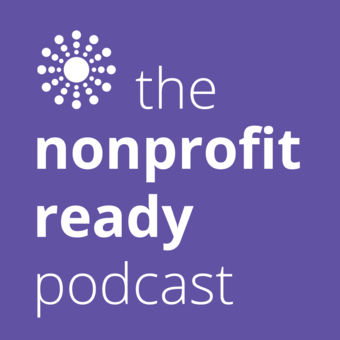 The Nonprofit Ready Podcast
The Nonprofit Ready Podcast
 Nonprofit Hub Radio
Nonprofit Hub Radio
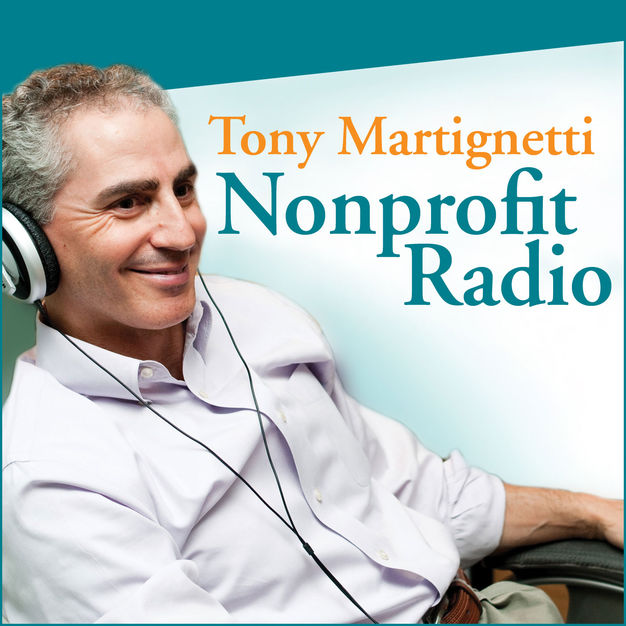 Tony Martignetti Nonprofit Radio
Tony Martignetti Nonprofit Radio
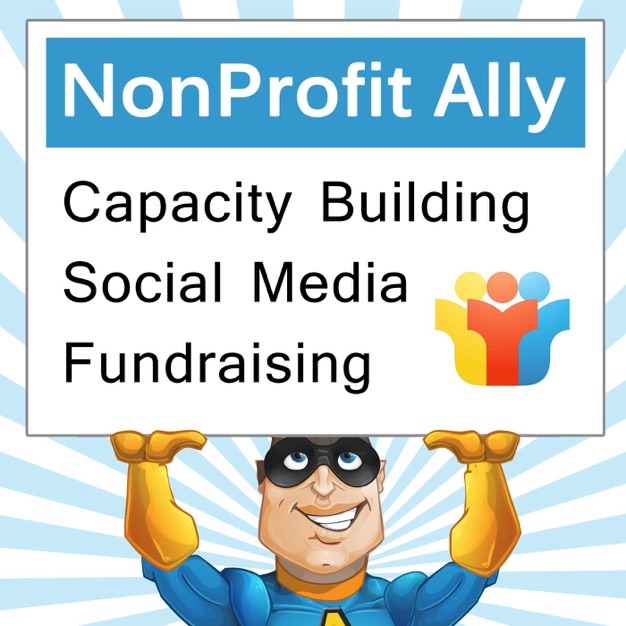 Nonprofit Ally Podcast
Nonprofit Ally Podcast
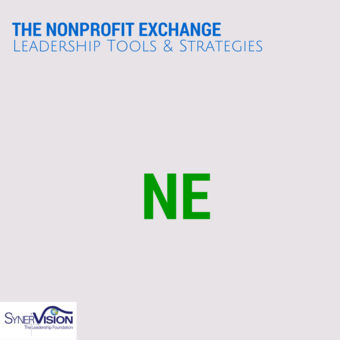 The Nonprofit Exchange: Leadership Tools & Strategies
The Nonprofit Exchange: Leadership Tools & Strategies
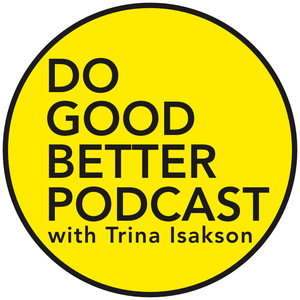 Do Good Better Podcast: social innovation | nonprofit sector | careers in social good | social enterprise
Do Good Better Podcast: social innovation | nonprofit sector | careers in social good | social enterprise